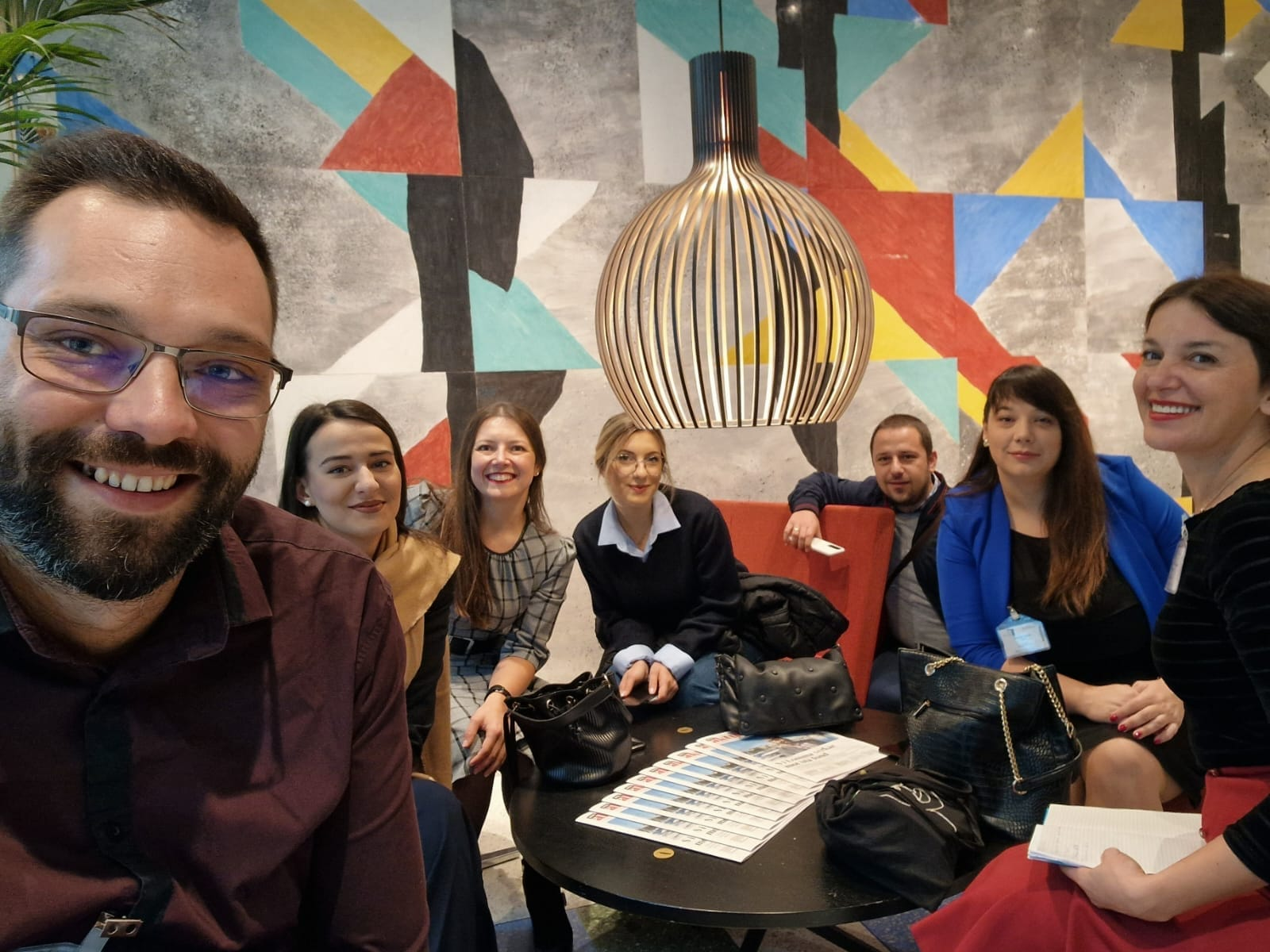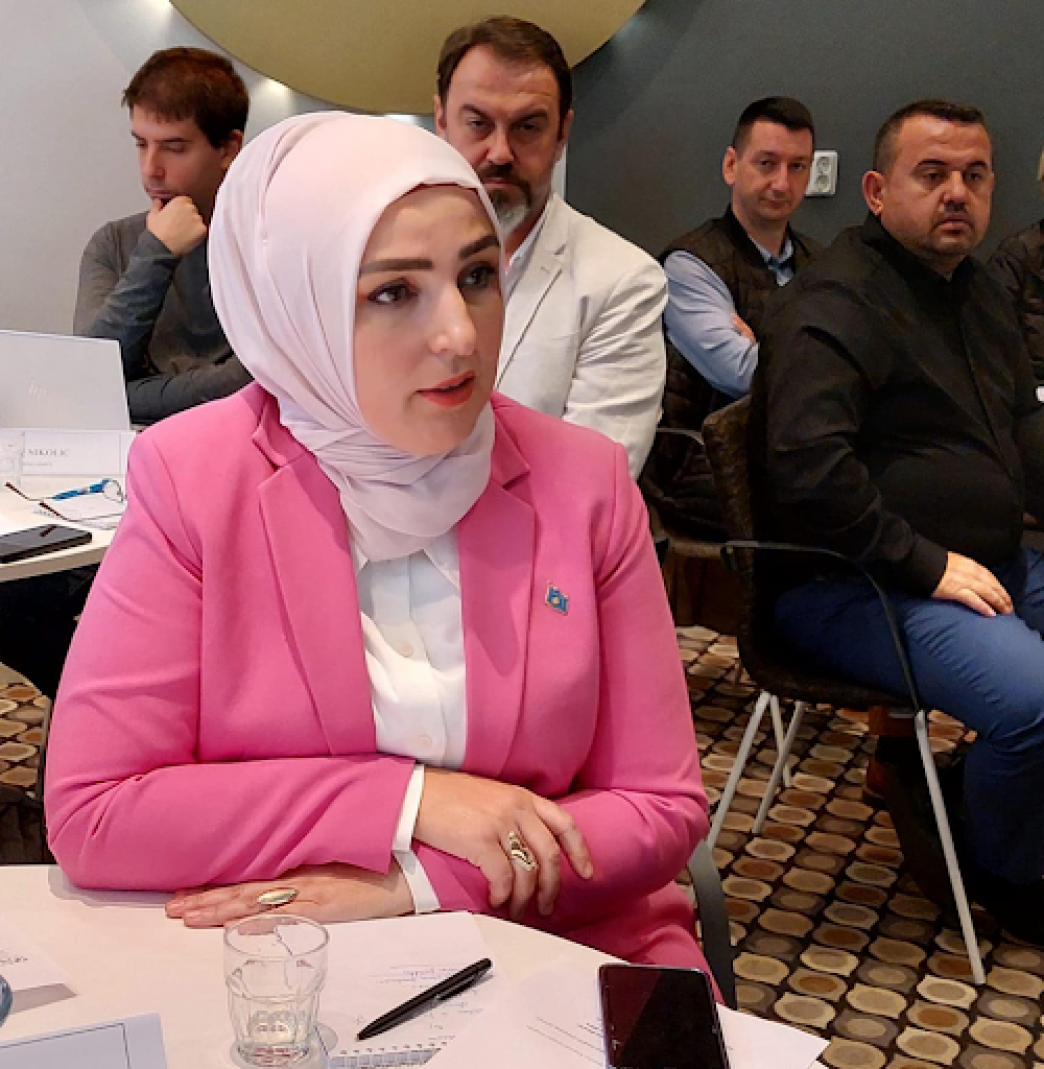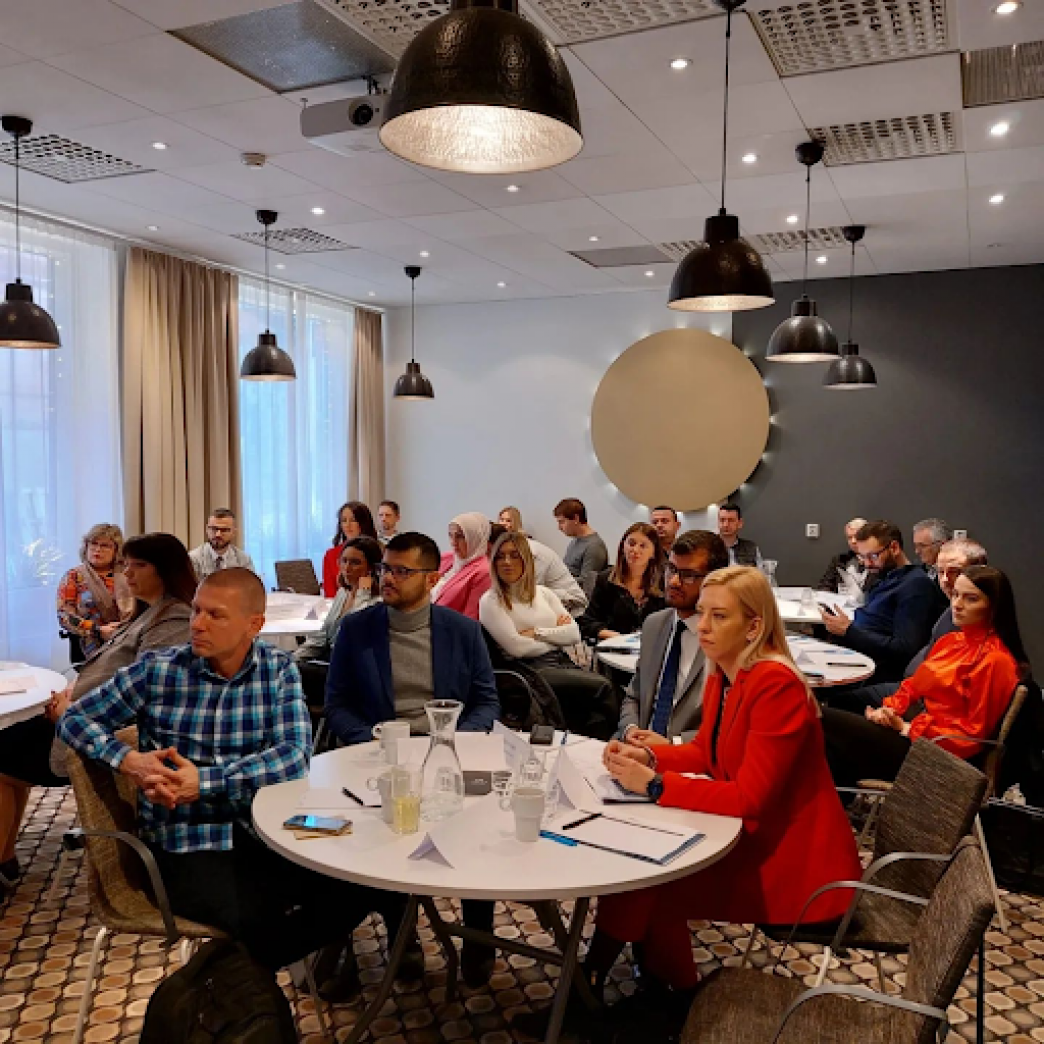
SHARE
Making their way from southeastern Europe, 31 leaders of parties from across the political mainstream in Albania, Bosnia and Herzegovina, Bulgaria, Croatia, Kosovo, North Macedonia, Montenegro, Romania, Serbia, and Slovenia traveled to Stockholm last October.
It was a rare gathering. Their political parties represent opposing groups and hold government and opposition positions at national and local levels. They often find themselves in conflict with one another. They do not always see eye to eye with their neighbors, either. Yet together, these parties talked about political integrity systems with Swedish political parties, party foundations, and political party experts. Systems of political integrity include the culture, practices, and internal rules of political parties on topics such as financial accountability, ethics, fair candidate selection, and inclusion of traditionally marginalized groups. In Southeast Europe, citizens often see political parties as corrupt or untrustworthy. So, improving integrity internally strengthens a political party’s ability to work effectively and builds trust with supporters.
And on this trip, the group found common ground. Peer-to-peer, the group discussed with Swedish parties how to advance organizational culture, party finance practice, and candidate selection criteria in their parties and saw hands-on through visits how Swedish parties are building on long-standing practices of internal democratic norms. For more than a decade, NDI has connected Swedish parties and party foundations with partners in southeastern Europe for expertise, training, and complementary funding of activities on this topic. This trip represented a culmination of some of these connections.
stockholm.png

“Discussions with our partners in Stockholm helped parties promote integrity in their structures—increasing the participation of women and youth, and improving their candidate selection processes.” — Ana Radicevic, NDI Regional Political Integrity Program Director
These are crucial to building citizen trust in political parties, as practices that help parties to embody citizen priorities like gender equality and anti-corruption. Hearing how others think about ethics for elected officials, responsiveness to campaign promises, setting clear criteria for candidate selection, or understanding and responding to the needs of traditionally marginalized communities opened up new ways of thinking about each. In turn, they found even more in common—both in the struggle to address these difficult topics and how they respond.
Underscoring this point, Adnan Dibrani, a member of parliament from the Swedish Social Democratic Party, emphasized that constant dialogue is crucial for future relationships and problem-solving.
“The meeting with the sister party and the affiliated party Foundation was of great importance because our Swedish partner party reinforced inclusion of women and youth in party operations as indespensible element of party integrity.” — Participant from North Macedonia
IDEA.png

Now, several political party foundations are collaborating with their Swedish counterparts to create ongoing training and exchange between young politicians from Southeastern Europe and Nordic countries. The participants have built relationships across party lines that continue to flourish—and will build room for genuine power-sharing in parliament, overcoming partisan conflict to support smooth, democratic electoral processes and creating environments that enable not only the participation of women, youth, and minorities—but genuine power-sharing. For example, in North Macedonia, participants from the governing coalition and opposition parties who attended the trip now meet regularly to explore more ways to develop programs on democratic norms and standards, regardless of their ideological differences.
Healthy political parties and party systems are core features of strong and sustainable democracy. One way NDI is helping political parties in Southeastern Europe is by ensuring that political party members interested in reform have the technical and peer support they need to create change. NDI will continue to provide opportunities for nurturing these critical relationships through peer exchange, mentorship, and technical expertise—particularly through this regional program funded by the National Endowment for Democracy.
"Young people like ourselves are leading the efforts to improve integrity in political parties and strengthen our democracy. Programs like these are providing us the tools, networks, and knowledge to lead this change."
- Participant from Bosnia-Herzegovina
Authors: Ana Radicevic and Elizabeth Saam
NDI implemented this activity through its program from the National Endowment for Democracy (NED) with complementary funding from the European Network of Political Foundations (ENOP) and the Olof Palme International Center.
###
NDI is a non-profit, non-partisan, non-governmental organization that works in partnership around the world to strengthen and safeguard democratic institutions, processes, norms, and values to secure a better quality of life for all. NDI envisions a world where democracy and freedom prevail, with dignity for all.


